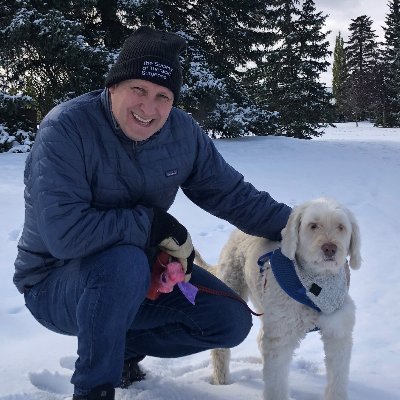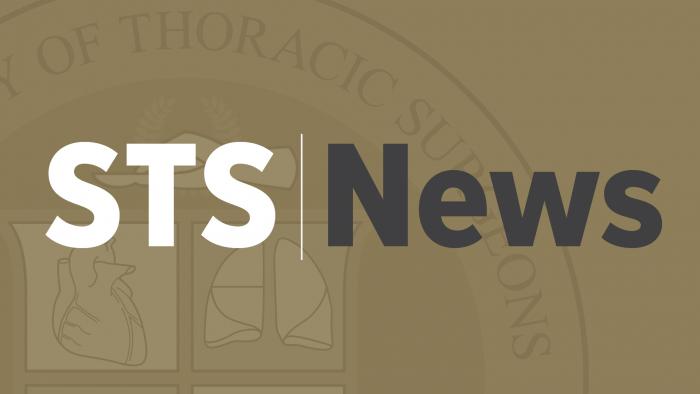The world of cardiothoracic surgery lost an iconic role model and champion for the profession with the passing of Sean C. Grondin, MD, MPH, FRCSC, The Society of Thoracic Surgeons’ 2021 President.
A master surgeon and medical educator, Dr. Grondin, 56, passed suddenly in November after inspiring hundreds of surgeons throughout their careers, raising the quality of the profession, and saving the lives of countless patients.
An academic surgeon, Dr. Grondin took very seriously the responsibility of inspiring and supporting his colleagues to be better surgeons and researchers, and to improve the profession as a whole. For the past 20 years, he was highly regarded as a “surgeon’s surgeon” and leader at Alberta Health Services and Professor of Surgery at the University of Calgary Cumming School of Medicine in Alberta, Canada.
“Never ever was it all about Sean,” said his long-time colleague and friend Susan Moffatt-Bruce, MD, PhD, chief executive officer at the Royal College of Physicians and Surgeons of Canada. “He had a heart of gold—there is just absolutely no doubt about that.”
Focus on What Mattered Most
Dr. Grondin’s priorities were his family, good relationships with others, and constant drive for top quality in all aspects of cardiothoracic surgery, Dr. Moffatt-Bruce said.
He brought friendship, collegiality, and opportunity to his fellow surgeons, not just by talking, but by opening doors. His word and intentional actions were influential, and he used them to help others earn committee appointments, visiting professorships, fellowship opportunities, and other avenues for development that would enhance knowledge and skills.
“When I would go to a meeting, perhaps what I looked most forward to was seeing Sean. If I was down about something, he lifted me up, he helped put problems in perspective,” said Douglas E. Wood, MD, chair of the Department of Surgery at the University of Washington and past STS president. “As a close friend, he fulfilled what was most important—he was loyal, non-judgmental, present, and a source of comfort and inspiration.”
Dr. Grondin, the first Canadian general thoracic surgeon to become STS President, called it “a highlight of my career.” With good decision making and intuition about surgeons’ needs at a difficult time, he guided the Society through the COVID-19 pandemic. Dr. Grondin was also a strong proponent of tracking patient outcomes to improve surgical quality. During his time as STS President, he enabled further development of the STS National Database™ to bring accountability for patient outcomes and identify areas for improvement.
A Canadian Who Touched the World
Dr. Grondin was born in Edmonton, Alberta, Canada, where he spent most of his youth and adult life, but his perspective grew globally.
He developed a broader view of who received surgical care, who did not, how patients everywhere fared following surgery, and what could be done to correct racial and socioeconomic care disparities. This viewpoint drew him to earn an MPH in clinical effectiveness from Harvard University in 1999 and helped him advance equities in cardiothoracic surgery.
Dr. Grondin attended medical school and completed a general surgery residency at Dalhousie University in Halifax, Nova Scotia, Canada. He completed a thoracic surgery residency at the University of Toronto, a thoracic oncology fellowship at the Brigham and Women’s Hospital in Boston, Massachusetts, and a second fellowship in minimally invasive thoracic surgery at the University of Pittsburgh in Pennsylvania.
 After his fellowships, he practiced at Northwestern University Evanston Hospital in Illinois before returning to his native Canada at Foothills Medical Center, where he headed the clinical and academic sides of the Department of Surgery from 2016 to 2020.
After his fellowships, he practiced at Northwestern University Evanston Hospital in Illinois before returning to his native Canada at Foothills Medical Center, where he headed the clinical and academic sides of the Department of Surgery from 2016 to 2020.
Dr. Grondin received many awards and honors, including the Royal College of Physicians and Surgeons of Canada “Mentor of the Year,” and multiple visiting professorships throughout the world. In 2016, he earned the highly competitive James IV Association of Surgeons Canadian Traveling Fellowship and used this opportunity to exchange knowledge with thoracic surgeons in China, Australia, England, and Scotland.
He was a Regent at the American College of Surgeons and incoming president of the Western Surgical Association, and he had served as a leader in every Canadian thoracic surgical association, including past president of the Canadian Association of Thoracic Surgeons.
Working Hard for Patients, Family
Throughout all his accomplishments and in his humble demeanor, Dr. Grondin would say, “I am not the smartest person in the room. I just work hard.”
He did the same for his patients, and they cherished him. “I thank God for this man every day and that he graced me with his surgical skills. He is the best surgeon and those who are fortunate to be his patient have the second best shot of their life,” one patient wrote.
He passed his work ethic on to—and was tremendously proud of—his grown children, Kate and Ben. An avid outdoorsman, soccer and hockey player, and labradoodle owner, Dr. Grondin extended his passions well beyond the OR. He credited his wife, Cathy, for being the glue that held everything together and making his life complete.
“His legacy lives on in every surgeon he has helped to shape, and as such, the pursuit of excellence in cardiothoracic surgery continues,” Dr. Moffatt-Bruce said.
